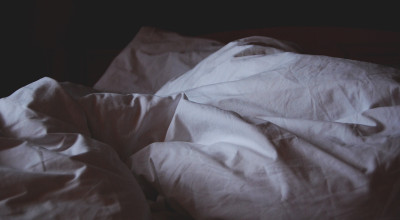Removing Insomnia as a Barrier to Treatment
March 4th, 2024
By P. Casey Arrillaga, LCSW, LCDC
Insomnia is a reason that people often give for not going to addiction/mental health treatment. They fear their trusty medications will be taken away, leaving them defenseless against this condition, and thus doomed to a life without enough sleep. In this post, we’ll look at the reality about insomnia, common misconceptions around this, and how the truth can set people free.
What We Know So Far
Insomnia, most simply defined as not getting enough sleep, affects at least one third of American adults according to the Center for Disease Control [CDC]. While the need to sleep varies over a lifetime, for most adults, getting less than seven hours per night is considered too little. In surveys going back over 10 years, up to 40% of adults reported insomnia, with more men than women affected overall.
Not surprisingly, there are a lot of unpleasant and downright dangerous effects from this. People who don’t get enough sleep are more prone to all kinds of physical health conditions, including heart disease, diabetes, and obesity. Those with insomnia are also at heightened risk for a number of mental health conditions. This is because sleep is a vital time for our brains to regroup and organize the immense amount of information they take in every day. Dreaming, which only occurs during certain parts of a complete sleep cycle, is a big part of this, so anything that disrupts the sleep cycle or cuts it short can affect us deeply. This can lead to depression, anxiety, disorientation, problems with concentration and attention, and memory loss, and other problems. Drivers are at just as great a risk when driving sleepy as they are while driving under the influence of chemicals.
Insomnia can also set someone up for a vicious cycle of addiction. This is in part because lack of sleep leaves a person more neurologically vulnerable and thus more prone to make worse choices, including choosing to use alcohol or other drugs, or to engage in addictive/compulsive patterns with food, sex, shopping, gambling, etc. Being tired leaves a person more vulnerable to relapse, because the brain’s resources may be less, and what is available will be devoted to basic survival rather than making sound decisions that take long-term consequences into consideration.
Another reason insomnia leads to greater vulnerability to addiction is that people who are desperate to sleep may turn to chemicals to knock themselves out. Alcohol is many people’s choice of “sleep aid” because it eases anxiety and racing thoughts that make it hard to sleep. Unfortunately, the deep sleep that alcohol brings turns out to be an illusion. People who have consumed alcohol actually disrupt their sleep cycle in destructive ways. Despite spending hours unconscious, the quality of sleep and dreaming is poor, and it can take days after the last use of alcohol for the sleep cycle to heal. If a person is using alcohol regularly, they may go months or years without getting properly restful sleep. They may use more and more alcohol to try to remedy a problem that they are actually making worse. Of course, the longer any person uses alcohol, the more likely they are to become addicted to it. Thus, many people fall into addiction who might have otherwise been spared, all because they couldn’t get enough sleep.
Alternatively, people are increasingly turning to marijuana, Research shows that while users expect it to help them get better sleep, it has the opposite effect. Remarkably, they do not seem to make that connection, so many keep trying to get the drug to get them good sleep when it actually reduces sleep quality and duration. Similar to alcohol or any other drug, the more it is used, the more likely the user will become addicted.
Another popular choice to address insomnia is the use of prescription pharmaceuticals such as anxiety-reduction pills including benzodiazepines (Xanax, Klonopin, Valium, etc.) or similar pharmaceuticals specifically for sleep, known as nonbenzodiazepines (Lunesta, Ambien). Like the other drugs covered so far, these are not inherently bad, but they may not provide the sleep benefits they promise. For instance, benzodiazepines give the user the perception of better sleep while actually reducing the amount of time they spend in the vital REM dream state. Additionally, when used for more than six weeks, they have been shown to create confusion, depression, and impact cognitive processes to the point of increasing dementia. While nonbenzodiazepines have been around for a shorter time and thus have been studied less, researchers say they carry the same risks. Both types of anxiety/sleep medications also have a high potential for abuse, and many clients have come to treatment for benzodiazepine addiction.
What Can Be Done?
As with any addictive substance, the thought of giving any or all of these drugs up can be very scary, but doing so is clearly the best way to go. The fear can be compounded by the fact that most people coming to treatment are already looking at making big life changes, so dealing with sleep issues at the same time may be a genuine concern while simultaneously being a great excuse to avoid checking in.
This means that the treatment facility has be to able to deal with those sleep issues, hopefully with something better than, “You’ll get over it.” At Windmill, our medical and therapeutic team is very experienced with such issues and can help people find the solutions that work best for them. This may include non-addictive sleep medications, therapeutic solutions to reduce the anxiety that often creates or exacerbates insomnia, and our Brain Frequency treatments that have had a positive impact for many clients. Through this combination of treatments, our clients consistently report improved sleep, and we are able to help them balance their sleep cycle when they are no longer taking heavy sleep medications.
The Bottom Line
Insomnia is a real problem for many people, and it can create a terrible cycle when people turn to addictive substances to manage it. While this may seem like a barrier to coming to treatment, facing that fear most often leads to a better life that includes better sleep.
About The Author
P. Casey Arrillaga is the Team Leader for Education at Windmill Wellness Ranch, and he is the author of books including “Realistic Hope: The Family Survival Guide for Facing Alcoholism and Other Addictions”.


